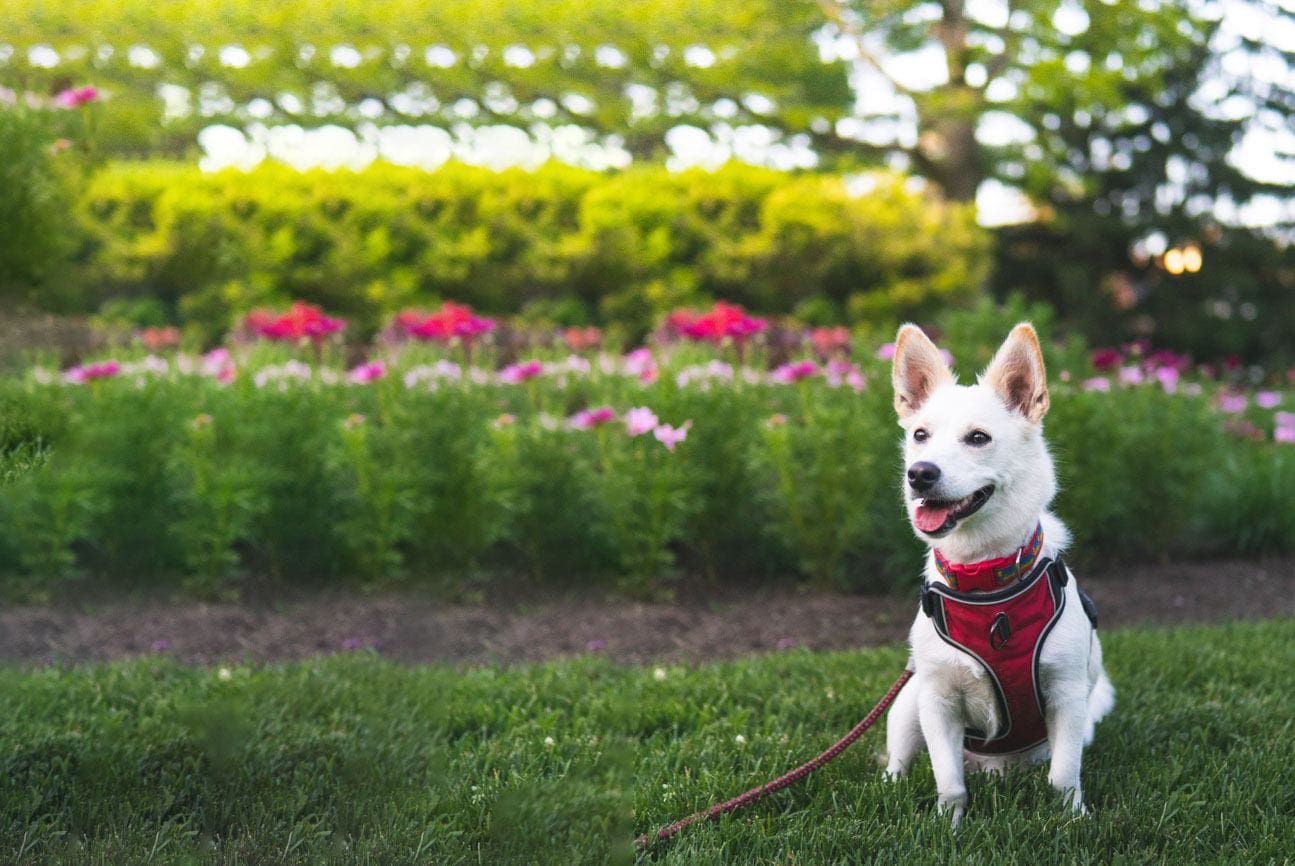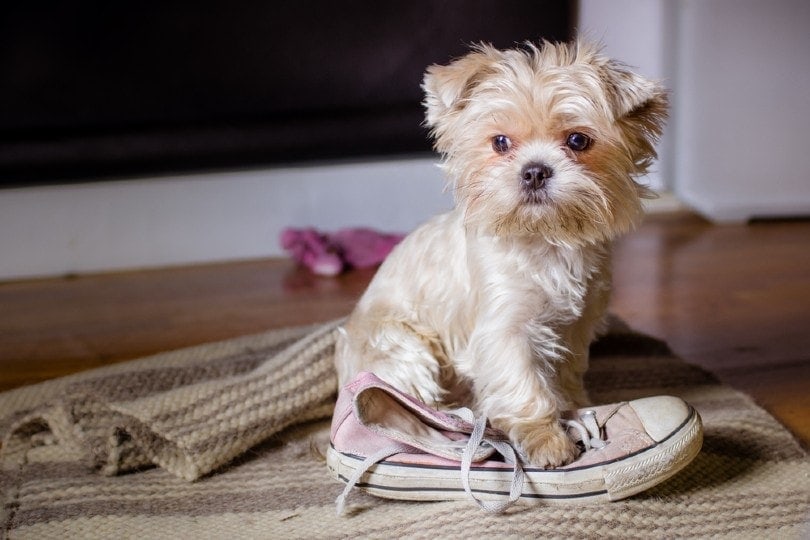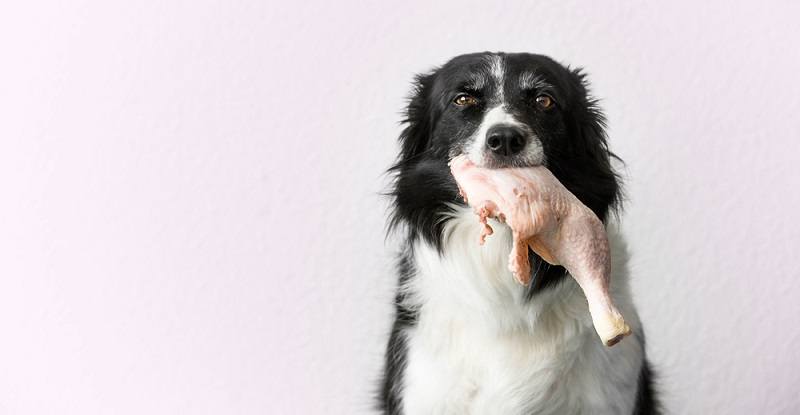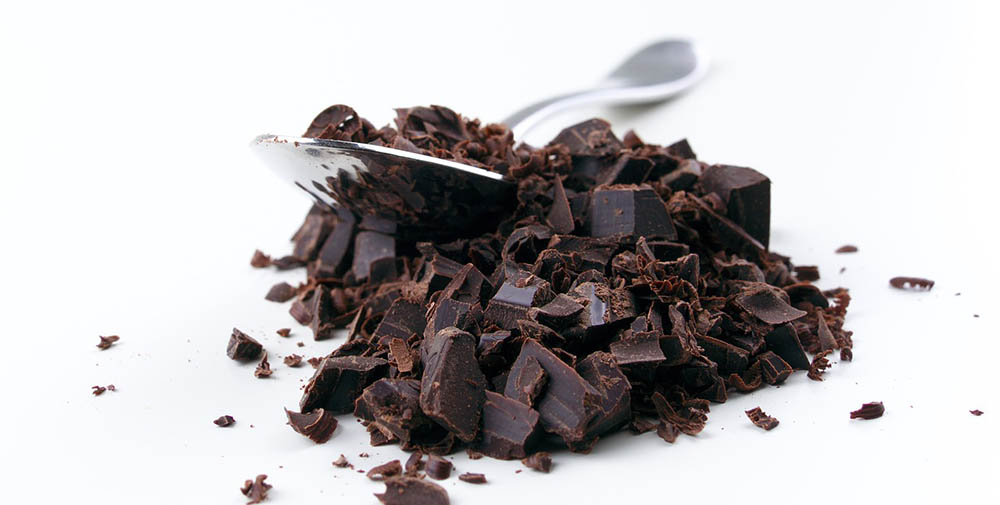Height:
13 inches- 15 inches
Weight:
20 – 50 pounds
Lifespan:
12-15 years
Colors:
Sable, red, brindle, grey, white, black, tan
Suitable for:
Family with or without small children in homes or apartments in all climates. Moderate activity level homes that are not necessarily looking for a watchdog
Temperament:
Loyal, friendly, and sweet. Good with children and eager to please. Intelligent, alert, and social. Quick to make friends with people and other animals. Can be stubborn
If you have been looking around for a cute, playful, and energetic pup, the Corgi Husky mix could be just the pet for you. Sometimes known as the Horgi, Corgsky, or our personal favorite, the Siborgi, this short furball is the designer breed perfect for families, apartment living, and cute antics.
The Siborgi is a mix between two working dogs, the Siberian Husky and either the Pembroke Welsh or Cardigan Corgi. The Husky is a centuries-old breed that is classified by the American Kennel Club (AKC) as a working breed that was brought to the United States during the Gold Rush to “work” as a sled dog.
The Pembroke Welsh and Cardigan Corgi are also classified by the AKC as working dogs, and they are some of England’s oldest dog breeds. Unlike their larger counterpart, this Husky mixed with Corgi was used mainly for herding.
Mixed, the Corgi and Husky make pups with the best of both their parent’s personalities. That being said, each dog will have their own traits. It can largely depend on whether they lean more toward the Husky side or the Corgi side. It’s all in the genes…
Corgi Husky Mix Puppies – Before You Buy…
A Siborgi puppy is something to behold. They are playful, friendly, energetic, and happy. They make great companions for adults and kids alike. Plus, they are not opposed to herding kids in one way or another. Like most puppies, though, they can be a bit toothy, and it’s recommended they be trained as young as possible to avoid the worst behaviors. Pet parents should also have their new puppies vaccinated between eight and ten weeks with a booster after 12 months. Spay and neutering are important, as well.
The Corgi Husky mix is not recognized by the AKC, but they are what is known as a designer breed. When two pure breed dogs are bred for the specific purpose of creating a new breed (or crossbreed), the result is considered a designer dog.
What’s the Price of Siborgi Puppies?
Generally, a Corgi puppy will cost you anywhere from $300 to $800, but some breeders have been known to charge over $1,000. The cost can depend on the person or establishment you are buying from, as well as the lineage of the parents, their health, and the value the breeder places on the parents.
When determining whether the Siborgi is a pooch-pal you can afford, you also want to factor in other costs associated with pet adoption. For example, puppies will require a check-up, shots, spay/neutering, and microchips. There is also the additional costs of food, treats, toys, leashes and collars, shampoos and other grooming products, and a crate/kennel.
3 Little-Known Facts About the Corgi Husky Mix
1. The Corgi Husky is a Descendent of Wolves
The Siberian Husky hails from their namesake Siberian, and they are descendants of the Taymyr wolves. Imported to Alaska during the Gold Rush, most modern Huskies came to the USA in the 1930s. It is also thought that the Pembroke Welsh Corgi comes from a wolf background, too.
2. The Corgi Husky Rode with Fairies
According to Welsh folklore, Pembroke Corgis once pulled fairy carriages, and the dogs were ridden by the fairies like ponies. In fact, if you look closely at the Corgi’s back, you can still see the markings of the fairy’s saddle. Depending on the parentage, your Sibrorgi can also have this mythical marking.
3. The Corgi Husky Mix Always Has a Husky Mother
Due to the size difference between a Husky and Corgi, traditional…puppy making…is impossible. Crossbreeding these two pooches must be done by artificial insemination, but because of the size of the potential newborn, the mother needs to be the bigger of the two. This makes the mother always a Husky, and the father always a Corgi.

Temperament & Intelligence of the Corgi Husky Mix
As mentioned, the Siborgi can exhibit many different personality quirks, temperament, and intelligence based on their parentage. When mixing the two breeds, there is no way to tell which genes will be recessive and which ones will be dominant. There is also something to be said about their individual personalities, their initial handling as puppies, and their upbringing. All of these factors can play a role in how the Horgi will turn out.
That being said, you can get a pretty clear idea of their traits and characteristics based on their ancestors. For example, thanks to their Husky mothers, the mix is energetic, intelligent, alert, and loyal. On their dad’s side, you will find a social pup that is friendly, eager to please, sweet, and playful.
Let’s look at some traits you can expect:
- Friendly: This is one of Horgi’s most apparent traits. Due to their trusting nature, they get along with people, other pets, and children very well. Be that as it may, they are not clingy or overly affectionate where they are attached to your hip at all times.
- Intelligent: Both the Corgi and Husky are well-known for their intelligence and their pint-sized offspring are no different. Another trait that runs hand in hand with intelligence is stubbornness, however.
- Energetic: As both parents are in the working class, the Siborgi is an energetic pup that is ready to have a frolicking good time. Their antics can be rambunctious, as well as
- Eager to Please: This crossbreed is very eager to please their pet parents. They are quick to learn what makes you laugh and will get them an extra treat.
- Loyal: This pooch is also a pack animal and they will quickly consider you and your family pack-material. They are also likely to put themselves between you and danger. In short, they are very loving dogs.
- Alert: Both the Husky and Corgi are very alert animals. Though this breed is not necessarily a great watch-dog, that doesn’t mean they are not aware of what is going on at all times.
One thing these little furballs are not great at is being a watchdog, as mentioned. To be frank, they are more likely to make friends with a robber (and hold the door as they walk away with your TV) than they are to sound an alert. Of course, they have a big bark for a small dog and they can howl with the best of them.
For another thing, these little cute balls of fun can be very stubborn, but we will talk about that in a little bit.
Are These Dogs Good for Families?
If you are looking for a pup that you can bring into your family, the Siborgi is a great option. Not only are they good with adults, but they are also great with kids of all ages. These small fluff balls have the energy of a Husky with the small stature of a Corgi, making them a great companion for smaller kids.
Their tiny legs and low to the ground bearing make them a good candidate for apartment living as well. Siborgis are great at adapting to most environments. They do well in houses with a lot of space, but they can fit right into city living without any problems.
Not only that, but they are also uncommonly good at tolerating severe weather conditions. Due to their thicker coat, they are more comfortable in colder climates, yet they can acclimate themselves to the warmth too.
Things to Know When Owning a Miniature Corgi Husky Mix:
Besides being an affectionate, social, and friendly companion, there are some other factors you need to take into consideration before you invite one of these pooches into your family. Below, we will touch on all the external factors like grooming, health, and training.
Food & Diet Requirements
Like most dogs, the Siborgi requires a nutritious and healthy diet to live a long and happy life. There are certain things you want to pay attention to, however, to keep them as fit as possible.
Calories
First, the Corgi Husky mix can be prone to obesity, so watching their calorie intake is important. As a general rule, your pup should get 30 calories per pound of body weight per day.
The calorie consumption should also be divided into their meals and treats with 80% designated for dinner and 20% coming from their snacks and other food. The best way to know the exact calorie intake is to discuss the issue with your vet. Other factors such as their age, activity level, height, and weight can also play a role.
Protein
Protein is one of the most important ingredients in your dog’s food. Again, as they are prone to obesity, lean proteins from quality meat are the best way to go. Look for meals that are natural or organic and do not contain protein fillers like pea by-products and things like brewer’s rice. It is generally recommended that your pet receives a minimum of 18% protein per meal.
Fat and Fiber
Two other important aspects of the Siborgi’s diet are fat and fiber intake. As a general rule, the Horgi should get between 10 and 15% fat per day and 1 and 10% fiber. Fiber is essential for keeping their digestive system working correctly.
Fat, on the other hand, is turned to energy, but as we mentioned with protein, healthy fats are best. Even ingredients like fish oil can be used as a healthy fat, and the omega fatty acid will help nourish and protect their coats.
Other Food
Treats and other snacks are important for creating a bond with your pet, and they provide a great positive reinforcement tool. That being said, the Siborgi should be monitored to make sure they don’t overeat. What’s more, meals and snacks with additional nutrients and supplements will aid in their overall health. For example, the Corgi Husky mix is prone to hip dysplasia, so glucosamine is a beneficial ingredient.
Exercise
You may have noticed our mention of this pup’s energy level. They are playful, prone to frolic, eager to stretch their legs, and curious. The Corgi Husky mix is always open to new adventures as well. Not only are they not shy, but you will rarely see them back down from a challenge.
That being said, you need to be mindful of their short legs. Although their ancestors were pulling and herding animals, these little canines have short legs that are not conducive to long hikes or runs. Instead, moderate daily exercise and rumbles in the yard are preferable. Ideally, a few short walks per day will benefit them better than once-a-day gallops. Additionally, time off the leash to wander independently is wise.
You also want to consider their coat. Regardless of whether they take after their mother or father, the Corgi Husky mix has a thick coat of fur that can be heavy in hot and humid weather. Be sure to let your pet rest and give them plenty of water to keep them hydrated.
Training
Another great trait of the Horgi is their ability to be trained. They generally pick up rules and obedience quickly; however, they can be stubborn. As we mentioned above, the Corgi Husky mix is very intelligent, so if you find yourself repeating the same command over and over without results, it is most likely due to their tenaciousness versus a lack of being able to grasp the lesson.
The overall training of the Siborgi is where your patience will have to be strong. In fact, if you are a first-time owner, we recommend getting some professional help. We also recommend training as early as possible. Let’s take a look at the different charm school courses your Horgi will need:
- Housebreaking: Housebreaking your dog is always important to keep them from going “potty” on your new rug. Starting with a puppy pad and moving it closer and closer to the door each day is a good place to start. Also, keeping them in the same room with you as much as possible is important.
- Obedience Training: This is important for learning the basic skill set of sit, stay, heel, no, etc. Positive reinforcement, a firm hand, and repetition are usually the best ways to accomplish this type of training.
- Behavioral Training: This can be the hardest part, but it’s well worth the effort. Behavioral training will take care of aggression, chewing, barking, and even separation anxiety, among other things. If your Horgi leans more on the Husky side of nature, they will be better with a firm hand, as Huskies are obedient to the pack leader. Again, patience, positive reinforcement, and a firm hand are required.
- Crate Training: Some pet parents are a fan of crates while others are not. That being said, many veterinarians recommend this training because it gives your pup a safe place of their own. Just make sure the crate/kennel is the correct size with plenty of ventilation. Also, it’s important that you not use the space as “punishment”.
The Corgi Husky mix can be stubborn at times, so keeping your patience firmly in hand is important. Of course, they also like to please, so a firm hand coupled with treats when they do well will eventually win them over.
Grooming ✂️
The Siborgi can have a few different color combinations. They can be tan, red, and sable like the Corgi; or gray, white, and black like the Husky. They can take on either of their parent’s patterns or markings as well.
Besides color, the Corgi Husky mix can have one or two different coat types. It will be either medium length and waterproof like their father or longer and double-layered like the Husky mother. Regardless of which coat they have, the thickness will require consistent grooming.
Fur Coat
You must brush your Horgi daily; twice daily during the shedding season. They will also need baths regularly. You will need to use shampoo when they are really dirty and conditioner to keep their fur shiny and soft. It is important to note that the medium length waterproof coat can be hard to wash, and both are more difficult to dry.
You should also take into consideration that people with allergies, asthma, or other breathing conditions may not do well with this breed, as they have considerable shed. Your vacuum should also be in top working order.
Nails, Teeth, and Ears
The Corgi Husky mix’s ears and teeth should be monitored and cleaned regularly. Their ears should be wiped with a cotton swab at least once a week to rid them of ear wax and other debris that could cause an infection.
Their teeth also need to be brushed at least twice a week with either a dog paste or you can use a mixture of baking soda and water. Dental treats are another great alternative; just keep in mind the dietary restrictions mentioned above, and double-check with your vet before adding them to their daily snacks.
Nails are also important. If they are allowed to grow too long, they can be uncomfortable. Many pet owners are leery of doing this chore alone, so if you feel unsure get help from a professional. Cutting the nails too short can cause their paws to bleed and hurt.
Health Conditions
Like any other canine, the Siborgi can be prone to different ailments that can strike at different points during their life. The different health conditions can vary depending on their genes, plus the health status of their mother and father. For example, these pups can be anywhere from 20 to 50 pounds. Heavier dogs are more likely to have back issues due to the extra weight.
Minor Conditions:
Besides the more serious conditions, there are more basic issues you want to be aware of. Though obesity is a serious concern, your Siborgi can become “overweight” quickly. As stated above, the Corgi Husky mix is between 20 and 50 pounds and between 13 and 15 inches. Make sure you check with your vet, so you know the appropriate diet for your pooch’s height and weight.
Other lesser issues include skin, eye, and ear infections. Overweight dogs can also be prone to back problems and joint pain. Of course, they are also in line for other issues that could befall either breed. Keeping your pup healthy, exercising, and happy, however, will ensure they live to their 15 years!
Serious Conditions:
Some of the more serious afflictions your Horgi can develop are epilepsy, DM, PDA, Von Willebrand’s disease, obesity, and hip dysplasia. As mentioned, these issues are generally genetic, so if you can gain proof of your pup’s parent’s health status, it will give you a better idea of what problems may come up in the future.
- Obesity
- Skin, eye, and ear infections
- Epilepsy
- DM
- PDA
- Von Willebrand’s disease
- Obesity
- Hip dysplasia
Male vs Female
There is not too much information on male versus female Corgi Husky mixes, but in our opinion, there are some basic genetic principles that can make a difference. For example, both the Corgi and Husky females tend to be smaller in stature. They will weigh less and not be as tall.
That being said, females of both breeds can also be more independent. Girl Huskies tend to be more standoffish, and if they are not fixed, they can be a bit crankier.
Corgi females tend to be the dominant one over their male counterparts. Although they are still friendly and playful, they may not be quite as affectionate.
Again, all of these traits can vary depending on the Siborgi’s genes, upbringing, early handling, and whether they have spayed or not. The latter can play a big role in your pet’s overall temperament which is why it’s highly recommended if you are not planning to breed your pup.
Final Thoughts:
The Corgi Husky mix is an adorable, playful, and loyal dog that will be a great addition to any home. They will typically fit right in with any other pets; plus, they are great with children. Even if you live in a medium-sized apartment by yourself, this bundle of energy will provide you with face licking companionship with someone who aims to please.
In practical terms, this pooch requires a good amount of grooming, and training should be done right away with a firm and patient hand. They are no more likely than any other pooch of developing an illness, but they are prone to weight gain. Exercise and careful diet planning should keep them in tip-top shape. Finally, if you are looking for the cute and cuddly factor, this breed has it in spades!
Featured Image: Honz Slipka, Shutterstock










